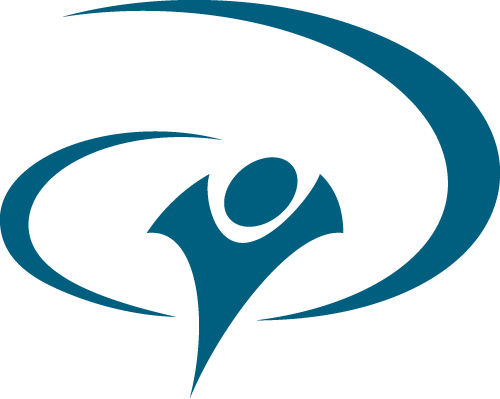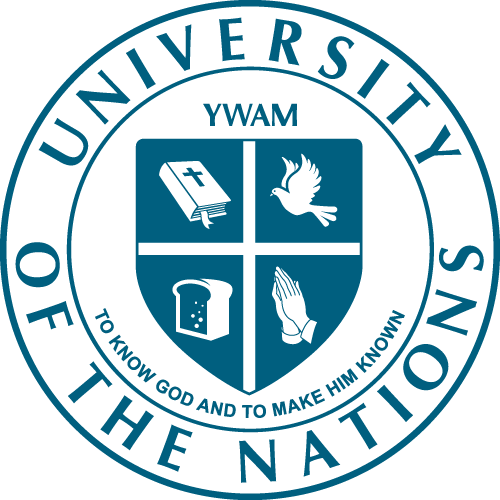In order for your DTS students to receive U of N credit for the DTS, each learning week of the DTS must be properly registered and be accompanied by the appropriate course registration fee.
- The purpose and basic curriculum of the DTS has been defined by the international leadership of YWAM and U of N. To ensure that the DTS stays on course with the vision, it is essential that DTS leaders keep the purpose statements in focus, that specific goals and objectives of each school support the fulfilment of the overall purpose statements and that the content be complete.
- The DTS must contain a minimum of 11 teaching content weeks, with a minimum of 12 teaching content hours per week for one language ( a minimum of 16 hours for a bi-lingual school) in addition to the other learning activities described in the document on “Full Learning Weeks“. The DTS must contain a minimum of 8 Field Assignment weeks. However, all leaders are encouraged to run a 24 week DTS course which will enable students to receive the maximum 24 credits allowed for a U of N DTS. This is based on the credit evaluation of one credit per “full learning week”.
- ดีทีเอส/ซีดีทีเอส เป็นโรงเรยี นการฝึกอบรมครสิ เตียนแบบเต็มเวลา ได้รับการ ออกแบบที่จะเป็นการบังคับให้คนเอาตัวเองออกมาจาก งาน หรอื โรงเรยี น หรอื อ่ืนๆ เพื่อช่วงเวลาท่ีเจาะจงอย่างน้ีและให้เวลาความตั้งใจน้ีท้ังหมดท่ีจะได้รับการ ฝึกฝน สร้างใน ดีทีเอส/ซีดี ทีเอส
- Each week of the complete DTS course must be a “Full Learning Week” as described in the document entitled “Full Learning Weeks“. Three hours of intercession are required per week throughout all of the DTS course weeks.
- Regularly scheduled one-on-one meetings between staff and students are to be carried out for feedback, assessment & evaluation. Our goal is one such individual meeting a week. See “One on Ones in the DTS” document.
- ดีทีเอส/ซีดีทีเอส จะต้องมีงานภาคสนามอย่างน้อย 8 Field Assignment/Outreach weeks throughout the total course and is to be carried forth in accordance with the guidelines defined in the U of N Reference Guide documents entitled “YWAM/U of N Field Assignment-Outreach Policy and Procedure”. “DTS Outreach Fruitful Practice“, “Minimum Criteria for DTS Staff“. The primary emphasis of the DTS/CDTS Outreach is to be evangelism, not only intercession or physical work and is to include a minimum of 30 hours per week of ministry activity serving people outside of the team. Ministry strategies are to come out of prayer. The majority of ministry activity is to involve connecting with people with the aim of facilitating them in becoming followers of Jesus. (evangelism) The Outreach in to include a minimum of 15 hours per week of other structured learning activities such as communication, team building, ministry debriefing, feedback, sharing of needs, prayer for individuals, ministry prep including at least 3 hours of intercession, and 3 times of worship as a team (God focused time) that is spread throughout each week of the Outreach. We should endeavor also to expose our students to the three aspects of the ministry calling of YWAM which includes Mercy Ministries. There should be a positive, cross-cultural evangelistic experience so that each one sees fruit. We want the students to see missions in action, and to like missions. As well, the Outreach weeks should be a conscious “putting into practice” of the teaching content throughout the DTS/CDTS. Outreach leaders should be constantly helping the students see how to apply the teaching to their lives and ministry. (i.e. How does the Father Heart of God apply in this outreach situation? What about the application of spiritual warfare, giving up rights, relationships, the Word etc.)
- YWAM’s Foundational Values ค่านิยมพื้นฐานของวายแวมต่างๆจะต้องสอน,ทําเป็นแบบอย่าง และผสม ผสานเข้าในดีทีเอส/ซีดีทีเอส ดูเอกสารชื่อ “The Foundational Values of Youth With A Mission”.
- สภาพแวดล้อมชอง ดีทีเอส/ซีดีทีเอส live/learn environment จะต้องเป็นสิง่ แวดล้อมท่ีการอยู่/ การเรยี นรู้ อย่างท่ีระบุไว้ใน แคตาล๊อกของUofN ใน ( the general information section) ปรัชญาการ อยู/เรยี นรู ้ เป็นแนวคิดการเรยี นรู ้ใน ชุมชน ซึ่งจะเร่งให้เกิดขบวนการเรยี นรู ้และในระดับ ลึกลงไป
- ผู้นํา/สต๊าฟ ที่ได้รับการฝึกที่มีคุณสมบัต in character, calling, gifting, and ability are necessary to run a DTS effectively. Therefore, there is to be on-going DTS staff/leadership training at the local base level. DTS staff/leaders cannot create, nor lead, a quality DTS that meets international requirements without on-going equipping for the task. Therefore the training of the DTS school staff/leaders must be valued in such a way that DTS staff/leaders have the time in their schedule to be trained prior to and during the DTS. DTS staff/leaders should not be expected to fulfil time-consuming non-DTS roles on the base for several weeks before, nor during the DTS. (i.e. roles that compete with their equipping and ability to fulfil their responsibilities with the DTS.) note: ‘qualified’ assumes the local base leadership has set minimum standards for qualification. See the documents entitled “U of N School Leaders Preamble”; “U of N School Leaders Characteristics”; “U of N School Leaders Accountability”; “U of N School Leaders Responsibilities”; “Who Can Lead a U of N School?”; “Minimum Criteria for DTS Staff ”.
- วทิ ยากรที่มีคุณภาพผู้ที่เป็นตัวแทนและเป็นแบบอย่างในการดําเนิน ชีวติ และมีค่านิยมวายแวมร่วมผสมผสานในคําสอน และการ สนทนากับ นักเรยี น เป็นสิง่ สําคัญต่อการเติบโตขบวนการการเรยี นรู ้ของ ดีทีเอส/ซีดี ทีเอส อย่างน้อย วทิ ยากรบางคนควรเป็นคนต่าง ชาติ จากเบ้ืองหลังต่าง คณะนิกาย และควรจะมีผู้หญิงรวมอยู่ด้วย
- การปฐมนิเทศก์สู่วายแวม ค่านิยม การทรงเรยี ก และโอกาสการทํา พันธกิจ ควรจะเป็นส่วนหนึ่งของทุกๆ ดีทีเอส/ซีดีทีเอส ผู้นํา/ สต๊าฟ มี สิทธิพิเศษ และความรับผิดชอบที่จะกระตือรอื ร้นเชื่อมโยงให้นักเรยี นได้ มีส่วนในพันธกิจหลากหลายโดยดูจากพื้นฐานความ สนใจเป็นพิเศษ,ของ ประทาน,ความสามารถและการทรงเรยี ก
- Orientation to U of N and its future courses on the U of website, “uofn.edu“, should be carried out with students, enabling them to see the bigger picture of missions training available to them through the University. DTS/CDTS leaders/staff should make sure that all other students should have equal access to U of N course information.
- การให้เกรดและประเมินเป็นภาคบังคับใน ดีทีเอส/ซีดีทีเอส
ก. การให้เกรดและประเมินนักเรยี น: เกณฑ์การประเมินและการให้เกรด จะต้องสื่อสารให้ชัดเจนกับนักเรยี นโดยผู้นํา ดีทีเอส/ซีดี ทีเอส ตั้งแต่เมือ เรม่ิ ต้นของ ดีทีเอส/ซีดีทีเอส และตอนท้ายของโรงเรยี น นักเรยี นแต่ละ คนจะต้องได้รับการประเมินและพิจารณาให้ เกรด ในเร่อื งเกณฑ์ดังกล่าว จากนั้นนักเรยี นจะได้รับเกรด จะเป็น S คือ สมบูรณ์แบบเป็นที่พอใจของ ดีทีเอส/ซีดีทีเอสหรอื Uคือไม่สมบูรณ์ไม่เป็นที่พอใจในการทําดีทีเอส/ ซีดีทีเอส
ข. การประเมินโรงเรยี น และการวัดผล: ทุกๆ ดีทีเอส/ซีดีทีเอส ทั้งภาค ทฤษฏี และออกประกาศ รวมไปถึงสต๊าฟ/ผู้นําา จะต้อง ทําต่อเนื่องจน สุดท้ายของแต่ละ ดีทีเอส/ซีดีทีเอสทั้งนักเรยี น และ สต๊าฟ/ผู้นํา ผู้นํา เบสมีหน้าท่ีรับผิดชอบโดยตรงต่อคุณภาพของ โปรแกรม ดีทีเอส/ซีดีที เอส และคุณภาพของ สต๊าฟ/ผู้นํา ดีทีเอส/ซีดีทีเอส รวมไปถึงการทําข้อ บังคับต่างๆของUofN ให้สําาเร็จ ซึ่ง ระบุไว้ในเอกสารช่ือ “Guidelines for YWAM/U of N Discipleship Training Schools” การ ประเมินผลของทุกๆ ดีทีเอส/ซีดีทีเอส และผู้นํา/สต๊าฟโดยนักเรยี น และ สต๊าฟของโรงเรยี นนั้นๆจะต้องให้ฟีดแบ็คต่อผู้นําเบสตามที่มีผลต่อ นักเรยี นตามการตัดสินใจที่ส่งผล ต่อ ดีทีเอส/ซีดีทีเอส เพ่ือการปรับ เปลี่ยนจะได้เกิดข้นึ เพื่อให้แน่ใจว่าการเปลี่ยนแปลงท่ีถาวรในการฝึกอบรม ได้เกิดขึ้นในทุกๆ ดีทีเอส/ ซีดีทีเอส และในทุกศูนย์วายแวม




